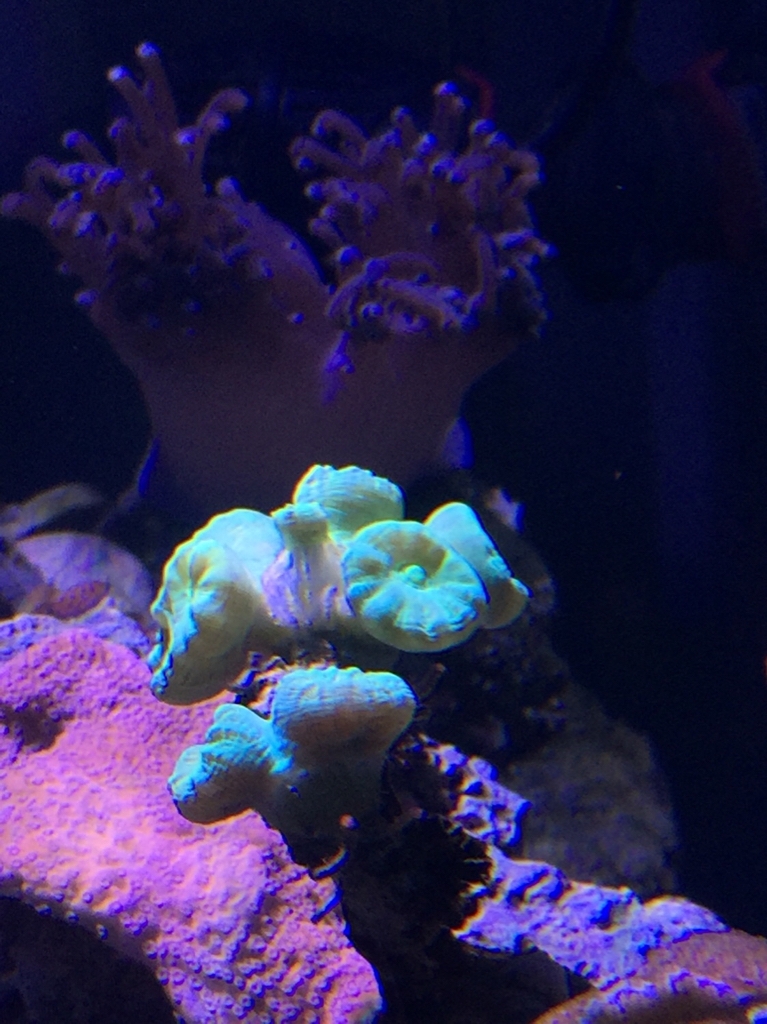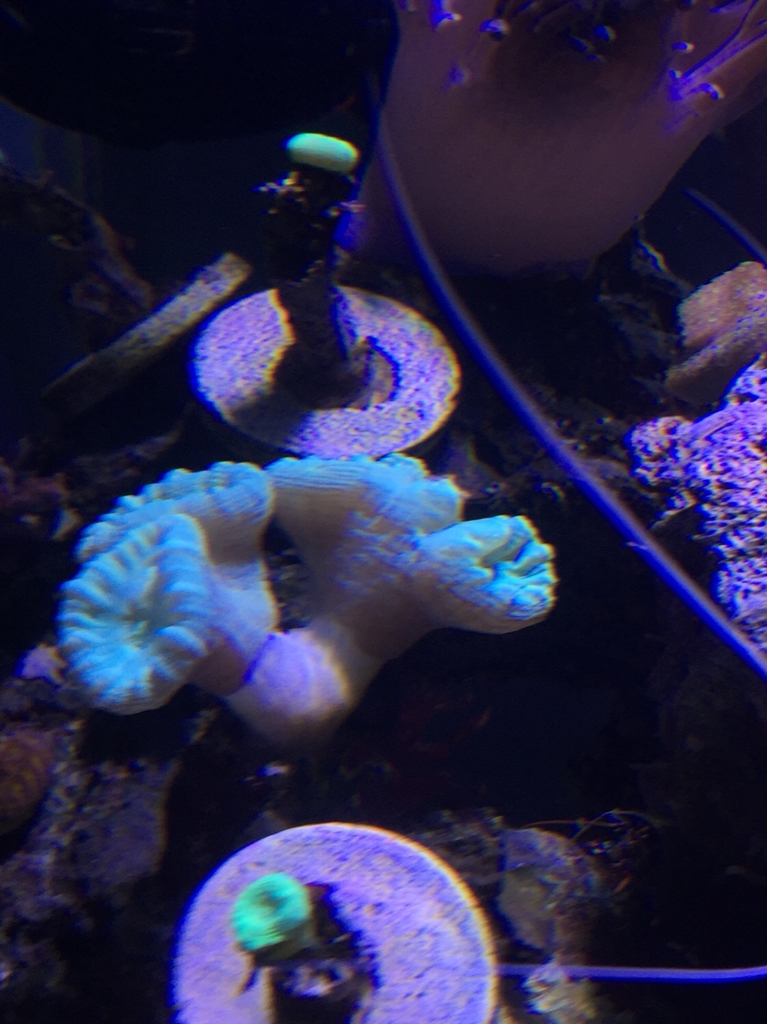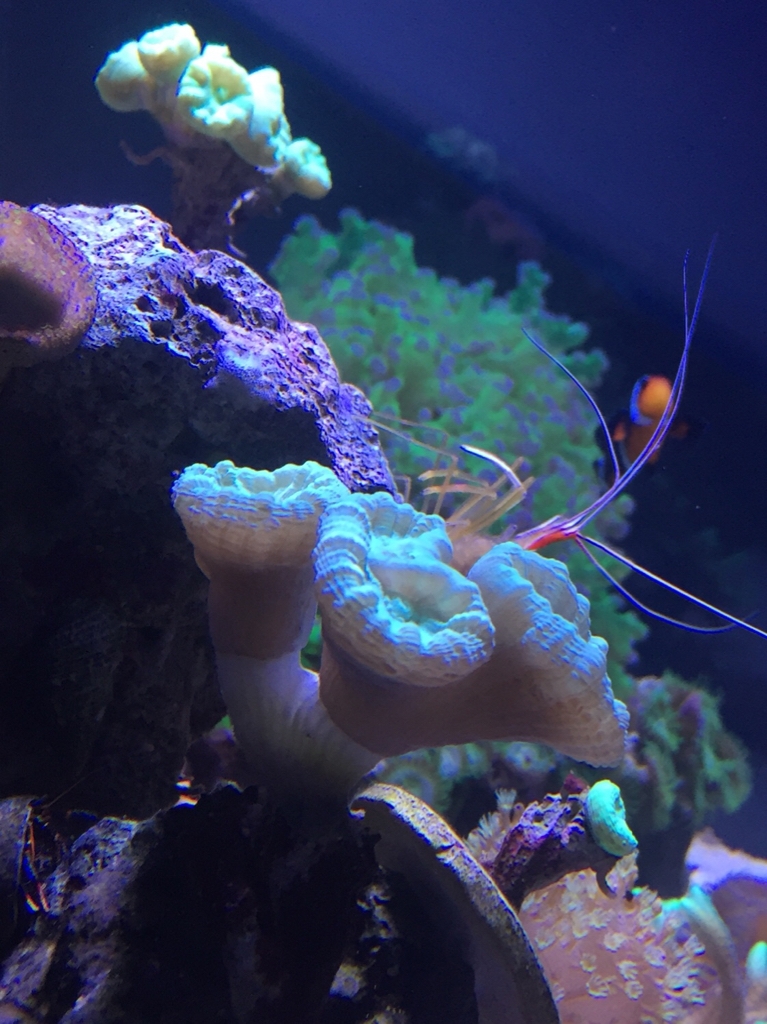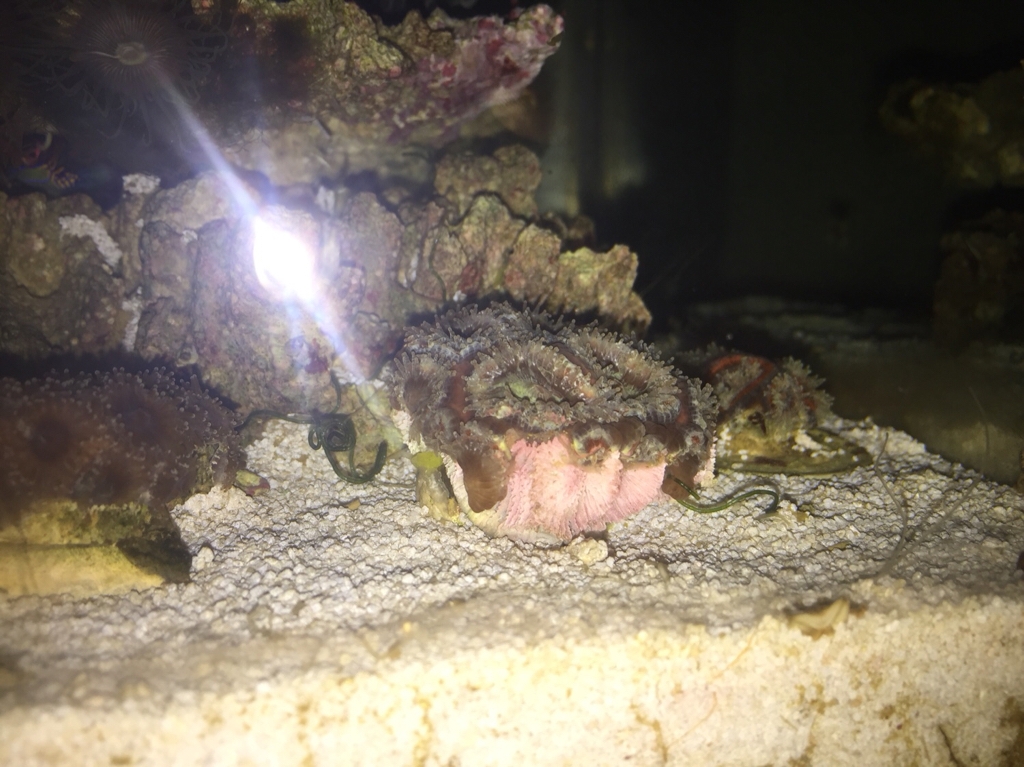- Location
- Merrick, NY
My tank is stocked pretty much to the max. Everything has been running great for a long time. Frogspawn is massive, candy canes finally started to split, SPS was opening beautifully. As I'm sure you all sense already. That didn't last.
I picked my acan up out of the sand the other day and noticed at the bottom that the skeleton was showing. I chalked it up to the fact that it may have been covered by the sand, slid it up higher and though nothing of it. Shortly thereafter I noticed that my candy cane was receding from the bottom and I though that since the heads were opened and happy that this was likely just the limit to how much flesh is on candy canes and as they grow longer and wider the base recedes (someone please tell me if that thought is remotely correct). Then I noticed my other candy cane (which had a much smaller head, but still about 6 heads in total and splitting) was also receding from the base. This candy cane is way too close to the mouths to be anything normal. So I started watching closely, every day. And it's only gotten worse. I do have a few other single head frags of the same candy cane and they are doing fine, no signs of receding what so ever. One of the heads on my frogspawn is showing more skeleton than I'm used to as well.
I'm using RODI water (which was the same batch from when it was doing well to when things changed). I do a 2.5 gallon water change weekly on my 30 gallon system.
Params:
Mag: 1480
Calcium: 460
dKH: 7
PO4: 0.25 ppm
Nitrate: 0 ppm
PH: 8.0
Salinity: 1.0255
Temp: 76.8 F
Recent additions were:
? Blue ridge
? Gorgonian
? Birds Nest (which is growing incredibly fast even through these problems)
? Green Pocillopora
? Red Skirt Zoa
? Purple Stylophora
All of which are doing fine.
I'm curious if you all think it's possible that the receding of the base is starvation? I've been keeping my feedings low and wonder if that along with the addition of new coral could have resulted in LPS running out of the necessary nutrients they need.
I've since increased my feeding of both mysis and marine snow but have yet to see improvement. One of the two candy cane colonies opens nightly for food while the other opens slightly but not nearly as much. The acan is looking terrible and doesn't really open much at all any longer. I've seen asternia starfish on the skeletons and flesh of these corals and while I know I've seen people say these kill coral I feel as though they are just eating the dying flesh and not the actual problem for the coral.
Any and all ideas are welcome, and again I want to get these params to you but would like to buy an accurate kit to do so. So please suggest one and I will update with numbers.
Thank you
I will post pics shortly.
I picked my acan up out of the sand the other day and noticed at the bottom that the skeleton was showing. I chalked it up to the fact that it may have been covered by the sand, slid it up higher and though nothing of it. Shortly thereafter I noticed that my candy cane was receding from the bottom and I though that since the heads were opened and happy that this was likely just the limit to how much flesh is on candy canes and as they grow longer and wider the base recedes (someone please tell me if that thought is remotely correct). Then I noticed my other candy cane (which had a much smaller head, but still about 6 heads in total and splitting) was also receding from the base. This candy cane is way too close to the mouths to be anything normal. So I started watching closely, every day. And it's only gotten worse. I do have a few other single head frags of the same candy cane and they are doing fine, no signs of receding what so ever. One of the heads on my frogspawn is showing more skeleton than I'm used to as well.
I'm using RODI water (which was the same batch from when it was doing well to when things changed). I do a 2.5 gallon water change weekly on my 30 gallon system.
Params:
Mag: 1480
Calcium: 460
dKH: 7
PO4: 0.25 ppm
Nitrate: 0 ppm
PH: 8.0
Salinity: 1.0255
Temp: 76.8 F
Recent additions were:
? Blue ridge
? Gorgonian
? Birds Nest (which is growing incredibly fast even through these problems)
? Green Pocillopora
? Red Skirt Zoa
? Purple Stylophora
All of which are doing fine.
I'm curious if you all think it's possible that the receding of the base is starvation? I've been keeping my feedings low and wonder if that along with the addition of new coral could have resulted in LPS running out of the necessary nutrients they need.
I've since increased my feeding of both mysis and marine snow but have yet to see improvement. One of the two candy cane colonies opens nightly for food while the other opens slightly but not nearly as much. The acan is looking terrible and doesn't really open much at all any longer. I've seen asternia starfish on the skeletons and flesh of these corals and while I know I've seen people say these kill coral I feel as though they are just eating the dying flesh and not the actual problem for the coral.
Any and all ideas are welcome, and again I want to get these params to you but would like to buy an accurate kit to do so. So please suggest one and I will update with numbers.
Thank you
I will post pics shortly.
Last edited:










